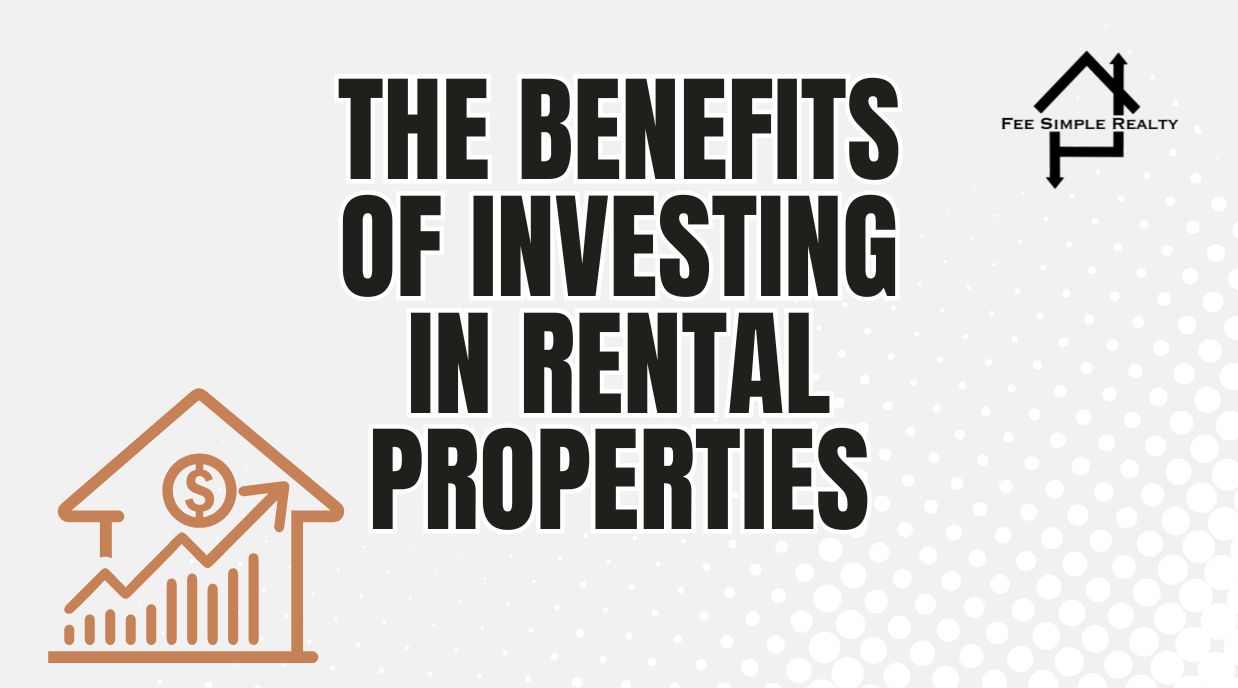The Benefits of Investing in Rental Properties
Investing in rental properties can be a lucrative way to build wealth and secure a steady income stream. This investment strategy offers numerous advantages, from generating passive income to providing tax benefits. In this post, we’ll explore the benefits of investing in rental properties, starting with a simple overview and then diving deeper into each aspect for a comprehensive understanding.
Overview: Benefits of Investing in Rental Properties
Benefits:
- Steady Income Stream
- Appreciation Potential
- Tax Advantages
- Diversification of Investment Portfolio
- Hedge Against Inflation
In-Depth Analysis: Benefits of Investing in Rental Properties
1. Steady Income Stream
Simple Explanation: Rental properties provide a regular monthly income from tenants.
In-Depth Analysis: One of the primary benefits of investing in rental properties is the ability to generate a steady income stream. Tenants pay rent monthly, providing landlords with a reliable source of cash flow. This income can cover mortgage payments, property management fees, and other expenses, while potentially leaving a profit. In markets like Lakeland, Florida, where demand for rental properties is high, investors can benefit from consistent occupancy rates and rental income.
2. Appreciation Potential
Simple Explanation: Rental properties can increase in value over time.
In-Depth Analysis: In addition to providing regular income, rental properties have the potential to appreciate in value. Real estate markets tend to appreciate over the long term, meaning the property you buy today could be worth significantly more in the future. This appreciation can lead to substantial capital gains when you decide to sell. Moreover, strategic improvements and effective property management can enhance the property’s value, further boosting your investment’s return.
3. Tax Advantages
Simple Explanation: Owning rental properties offers several tax benefits.
In-Depth Analysis: Rental property owners can take advantage of various tax deductions, which can reduce taxable income and improve overall returns. Some of the common tax benefits include:
- Mortgage Interest: Deducting the interest paid on mortgage loans.
- Depreciation: Writing off the property’s depreciation over time.
- Operating Expenses: Deducting expenses related to property management, maintenance, repairs, and utilities.
- Property Taxes: Deducting property taxes paid on rental properties.
These tax advantages can make rental property investment more profitable and help in managing the overall tax liability.
4. Diversification of Investment Portfolio
Simple Explanation: Rental properties diversify your investment portfolio.
In-Depth Analysis: Investing in rental properties adds diversification to your investment portfolio, which can reduce overall risk. Real estate often behaves differently from stocks and bonds, providing a hedge against market volatility. This diversification can stabilize your portfolio’s performance, as real estate investments may appreciate even when other asset classes decline. By including rental properties in your investment strategy, you can achieve a more balanced and resilient portfolio.
5. Hedge Against Inflation
Simple Explanation: Rental properties can protect against inflation.
In-Depth Analysis: Real estate investments are known to be effective hedges against inflation. As the cost of living increases, rental income and property values typically rise as well. This means that rental properties can help preserve your purchasing power over time. In inflationary periods, rental property owners can adjust rents to keep pace with rising costs, ensuring that their income remains stable in real terms.
How to Get Started with Rental Property Investment
- Research the Market
Before investing, research the local real estate market to understand trends, rental demand, and property values. Areas with growing populations and strong job markets, like Central Florida, often present good investment opportunities.
- Evaluate Properties
Carefully evaluate potential properties to ensure they meet your investment criteria. Consider factors such as location, condition, rental income potential, and appreciation prospects.
- Secure Financing
Explore financing options to fund your investment. Conventional loans, FHA loans, and investment property loans are common financing methods. Ensure you understand the terms and choose the best option for your financial situation.
- Manage Your Property
Effective property management is crucial for maximizing returns. Decide whether to manage the property yourself or hire a professional property management company. Proper management ensures tenant satisfaction, timely maintenance, and optimal occupancy rates.
- Monitor and Adjust
Regularly monitor your investment’s performance and make necessary adjustments. Keep track of rental income, expenses, and market trends. Adjust rental rates and management strategies to ensure continued profitability.
Conclusion
In conclusion, investing in rental properties offers numerous benefits, from generating a steady income stream and appreciating in value to providing tax advantages and diversification. By understanding these benefits and taking a strategic approach to investing, you can build wealth and secure financial stability, particularly in thriving markets like Lakeland and Central Florida.
Other Related Topics
If you found this information helpful, you might also be interested in learning about the pros and cons of buying a fixer-upper, understanding the role of a real estate attorney in property transactions, or exploring different types of real estate ownership. Stay tuned for more insightful real estate posts!
Contact us today or visit our Instagram | Facebook .
